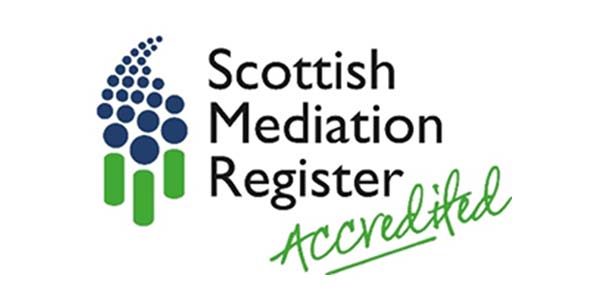LLM/MSc/PgDip/PgCert Mediation & Conflict Resolution
ApplyKey facts
- Start date: September
- Accreditation: Scottish Mediation Register
- Study mode and duration: LLM/MSc: 12 months full-time; 24 months part-time
PgDip: 9 months full-time; 21 months part-time
PgCert: 8 months part-time Practical experience: opportunity to join the Mediation Clinic
Scholarships: EU Engagement Scholarships worth £10,000 available to applicants from EU countries
Study with us
- practical skills and a thorough academic foundation – the only course of its kind in the UK
- real-world experience through our innovative Mediation Clinic
- a rich blend of students from a range of professional backgrounds including law, psychology, social work, education and management
- you can choose to do a 60-credit enhanced research proposal, professional internship or a professional project instead of a traditional dissertation
- full-time and part-time study options
The Place of Useful Learning
UK University of the Year
Daily Mail University of the Year Awards 2026
Scottish University of the Year
The Sunday Times' Good University Guide 2026
Why this course?
Mediation is fast becoming a core skill. Professionals in business, public bodies and the law are increasingly expected to resolve disputes without the delay and expense of litigation.
This Scottish Mediation Register-accredited programme is the only course of its kind in the UK. It's rigorous and multidisciplinary, combining both theoretical and practical elements. You'll be exposed to a wide range of approaches as well as being taught by experts from across the UK.
Graduates at Certificate, Diploma or Masters level fulfil the training requirements for the Scottish Mediation Register.
For those working in international settings, the core modules can be combined with classes such as International Human Rights Law to provide the foundation for work with charities and non-governmental organisations committed to conflict resolution.
You can graduate with either an LLM or MSc. Those whose dissertations deal with significant legal or justice questions receive recognition via an LLM. Those who take a social science or empirical approach will graduate with an MSc. This division reflects the range of students taking the course, who include:
- lawyers
- human resource professionals
- recent graduates of all disciplines
- managers
- teachers
- social workers
- coaches, as well as experienced mediators seeking a more academic grounding for their work


Interested in postgraduate study?
At the Faculty of Humanities and Social Sciences, our friendly and knowledgeable team will be available to provide you with all the information you need to kick-start your postgraduate journey at the University of Strathclyde. Register for upcoming events below:
What you’ll study
You’ll enhance your confidence in dealing with interpersonal and organisational conflict while developing your communication and problem-solving skills. You'll also have opportunities to acquire the skills of a mediator through simulations and case studies as well as gaining practical experience through our Mediation Clinic.
Successful completion of the course will provide you with:
- specialised knowledge and practical mediation and negotiation skills
- potential career advancement
- a further academic qualification as tangible evidence of expertise
- a rigorous, multidisciplinary perspective on conflict
- opportunities for further research
You can study on a full-time or part-time basis via a combination of evening and weekend classes, distance learning and personal study.
On the full-time pathway, the Masters level requires you to complete three classes in each of two semesters followed by a final project. Part-time students normally undertake three classes per year.
Learning & teaching
Lectures are delivered on weekday evenings and weekends.
Assessment
There are normally two assessments for each class – a practical and written assessment.
Mediation clinic
A unique feature of the course is that you can become a member of the Mediation Clinic – student-led mediation service for the Greater Glasgow area.
The clinic helps people resolve disputes without going to court or tribunal. It provides an in-court mediation service for small claims party litigants at Glasgow Sheriff Court. Each mediation is conducted by a lead mediator and student mediator.
Read more on mediation
Charlie Irvine, a Senior Teaching Fellow on LLM/MSc Mediation & Conflict Resolution writes regular content on the ‘Kluwer Mediation Blog’ on the subject of mediation, conflict and the law. You can follow his findings here.
Facilities
Our library has a wide range of law reports, legislation, serials and monographs. It also has duplicate sets of key law report series, houses extensive collections in government publications and other related areas.
You’ll have access to a wide range of electronic information sources which can be accessed from home, including all the major legal databases.
Theory & Principles of Conflict Resolution
The aim of the module is for you to develop a critical awareness of the theoretical and disciplinary sources of conflict resolution.
Mediation in Practice
You'll develop an ethical and self-critical approach to mediation practice that takes account of the current range of models.
Compulsory for LLM/MSc/PgDip
Critical Mediation Studies
This class takes a critical approach to mediation theory and practice, helping students develop a deeper understanding of major debates and challenges in the field. Topics covered include:
- ADR and its relationship to law-based dispute resolution
- The forms and dynamics of power in mediation
- The state-approved uses of mediation and other forms of ADR
- The major critiques of mediation/ADR
Dissertation
This is an extended project of enquiry into an area of your own choice. You'll create knowledge in answer to a question which really intrigues you.
While you'll be very much in the driving seat, your work is nurtured and guided by a member of our academic staff team. You'll be guided by some of the world’s foremost experts.
Or
Enhanced Research Proposal
60 credits
This module supports students writing an enhanced research proposal, with a view to supporting their transition into PGR study (PhD/MPhil studies) and creating an early research supervision relationship with a prospective supervisor.
Or
Professional Internship
60 credits
This module gives students the opportunity to apply to pursue an internship in a national or international organisation relevant to their course. The internship allows students to be placed in a relevant host organisation for a specified number of hours agreed with the Strathclyde tutor. The student will be responsible for producing an internship report which will include an account of the knowledge and skills attained applying theoretical concepts and with reference to discipline specific literature as well as an in-context self-reflective analysis of the experience, the organisation and the work undertaken enabling broader critical reflections on the student’s place in the professional world.
Please note that enrolment in the Professional Project and Professional Internship modules is by application and is not guaranteed.
Or
Professional Project
60 credits
This module gives students to apply to do independent work in the final semester of their LLM/MSc. Students will be required to identify and co-design the project supported by their Strathclyde mentor. The project report includes the response to the research question co-designed with a relevant host organisation as well as an in-context self-reflective analysis of the project, the organisation and the student’s experience in executing the work enabling broader critical reflections on the student’s place in the professional world.
You may also choose a class from other Strathclyde Law School Masters programmes.
Negotiation
This class teaches negotiation in a variety of settings. It provides an overview of theories and models, establishing key principles for effective negotiation. It also uses practical negotiation exercises to build your knowledge and skills, covering such topics as business contracts, the public sector and personal injury.
Employment Mediation
You'll develop knowledge and skills in the use of mediation in employment disputes.
MSc Dissertation / LLM Dissertation
Once a student on the LLM/MSc programme passes all six classes they will be permitted to proceed to dissertation.
Three months are normally given to complete the dissertation and a supervisor will be allocated to students after the Progress Board of Examiners Meeting in May/June each year.
Legal Process & The Law of Contract & Other Obligations
This module is for students with a non-law background.
Delivery of this module is through both on-line learning with webcasts and attendance at four seminars in the Law School.

The practical skills and confidence I gained here, particularly through the Mediation Clinic, were instrumental in securing this role. During my time at ACAS, I was recognised as one of the high-performing conciliators. I had the opportunity to facilitate the participation of an ACAS representative at one of the clinic's workshops, a moment that felt like bringing my learning full circle.
Entry requirements
| Academic requirements/experience | First-class or Second-class Honours degree, or international equivalent. Entry may be possible with other qualifications, especially where the applicant has relevant work experience. |
|---|---|
| English language requirements | Please check our English requirements before making your application. |
Pre-Masters preparation course
The Pre-Masters Programme is a preparation course held at the University of Strathclyde International Study Centre, for international students (non-UK/Ireland) who do not meet the academic entry requirements for a Masters degree at University of Strathclyde.
Upon successful completion, you'll be able to progress to this degree course at the University of Strathclyde.

International students
We've a thriving international community with students coming here to study from over 140 countries across the world. Find out all you need to know about studying in Glasgow at Strathclyde and hear from students about their experiences.

Fees & funding
All fees quoted are for full-time courses and per academic year unless stated otherwise.
Fees may be subject to updates to maintain accuracy. Tuition fees will be notified in your offer letter.
All fees are in £ sterling, unless otherwise stated, and may be subject to revision.
Annual revision of fees
Students on programmes of study of more than one year (or studying standalone modules) should be aware that the majority of fees will increase annually.
The University will take a range of factors into account, including, but not limited to, UK inflation, changes in delivery costs and changes in Scottish and/or UK Government funding. Changes in fees will be published on the University website in October each year for the following year of study and any annual increase will be capped at a maximum of 10% per year. This cap will apply to fees from 2026/27 onwards, which will not increase by more than 10% from the previous year for continuing students.
| Republic of Ireland |
If you are an Irish citizen and have been ordinary resident in the Republic of Ireland for the three years prior to the relevant date, and will be coming to Scotland for Educational purposes only, you will meet the criteria of England, Wales & Northern Ireland fee status. For more information and advice on tuition fee status, you can visit the UKCISA - International student advice and guidance - Scotland: fee status webpage. Find out more about the University of Strathclyde's fee assessments process. |
|---|---|
| Scotland, England, Wales & Northern Ireland | LLM/MSc:
PgDip:
PgCert: £4,167 *Please note, Year 2 fee will be subject to an increase |
| International |
|
| Available scholarships | Take a look at our scholarships search for funding opportunities. |
| Visa & immigration | International students may have associated visa and immigration costs. Please see student visa guidance for more information. |
Please note: The fees shown are annual and may be subject to an increase each year. Find out more about fees.
How can I fund my course?
Scottish postgraduate students
Scottish postgraduate students may be able to apply for support from the Student Awards Agency Scotland (SAAS). The support is in the form of a tuition fee loan and for eligible students, a living cost loan. Find out more about the support and how to apply.
Don’t forget to check our scholarship search for more help with fees and funding.
Students coming from England
Students ordinarily resident in England may be to apply for postgraduate support from Student Finance England. The support is a loan of up to £10,280 which can be used for both tuition fees and living costs. Find out more about the support and how to apply.
Don’t forget to check our scholarship search for more help with fees and funding.
Students coming from Wales
Students ordinarily resident in Wales may be to apply for postgraduate support from Student Finance Wales. The support is a loan of up to £10,280 which can be used for both tuition fees and living costs. Find out more about the support and how to apply.
Don’t forget to check our scholarship search for more help with fees and funding.
Students coming from Northern Ireland
Postgraduate students who are ordinarily resident in Northern Ireland may be able to apply for support from Student Finance Northern Ireland. The support is a tuition fee loan of up to £5,500. Find out more about the support and how to apply.
Don’t forget to check our scholarship search for more help with fees and funding.
International students
We've a large range of scholarships available to help you fund your studies. Check our scholarship search for more help with fees and funding.
Law Postgraduate Community Bursary
The Faculty of Humanities & Social Sciences is offering a £700 fee reduction for ten applicants to the LLM Criminal Justice & Penal Change, LLM Human Rights Law and LLM Mediation & Conflict Resolution degree programmes who are working at any third sector/NGO organisation in the field of criminal justice and penal change, human rights or conflict resolution.
Faculty of Humanities & Social Sciences Scholarships
EU Engagement Scholarships are available to EU applicants who would have previously been eligible for Home (Scottish/EU) fee status.

I started our Mediation Clinic in 2012 and it now operates in several local courts, giving students the chance to work alongside experienced mediators in small claims cases. Recently shortlisted in the Scottish Legal Awards, the Clinic has become a respected part of the Scottish justice system.
Programme leader
Careers
Many students take their qualification into their existing professions, for example law, human resources, construction, education, management, social work and trade unions. A number of large law firms now have dispute resolution departments. Legal practitioners find the qualification a useful addition to their CV. HR managers who have taken the course report regular use of their mediation skills. Managers and social workers say they use them daily.
Former students are now working in community, homelessness and family mediation. Others have integrated mediation into their business offering.
Apply
Start date: Sep 2026
Mediation and Conflict Resolution
Start date: Sep 2026
Mediation and Conflict Resolution
Start date: Sep 2026
Mediation and Conflict Resolution
Start date: Sep 2026
Mediation and Conflict Resolution
Start date: Sep 2026
Mediation and Conflict Resolution
Start date: Sep 2026
Mediation and Conflict Resolution
Start date: Sep 2026
Mediation and Conflict Resolution
Contact us
Prospective student enquiries
Contact a member of our team on LiveChat between 10am and 4pm (GMT)
Telephone: +44 (0) 141 444 8600
Have you considered?
We've a range of postgraduate taught and Masters courses similar to this one which may also be of interest.
Glasgow is Scotland's biggest & most cosmopolitan city
Our campus is based right in the very heart of Glasgow. We're in the city centre, next to the Merchant City, both of which are great locations for sightseeing, shopping and socialising alongside your studies.

